In this guide
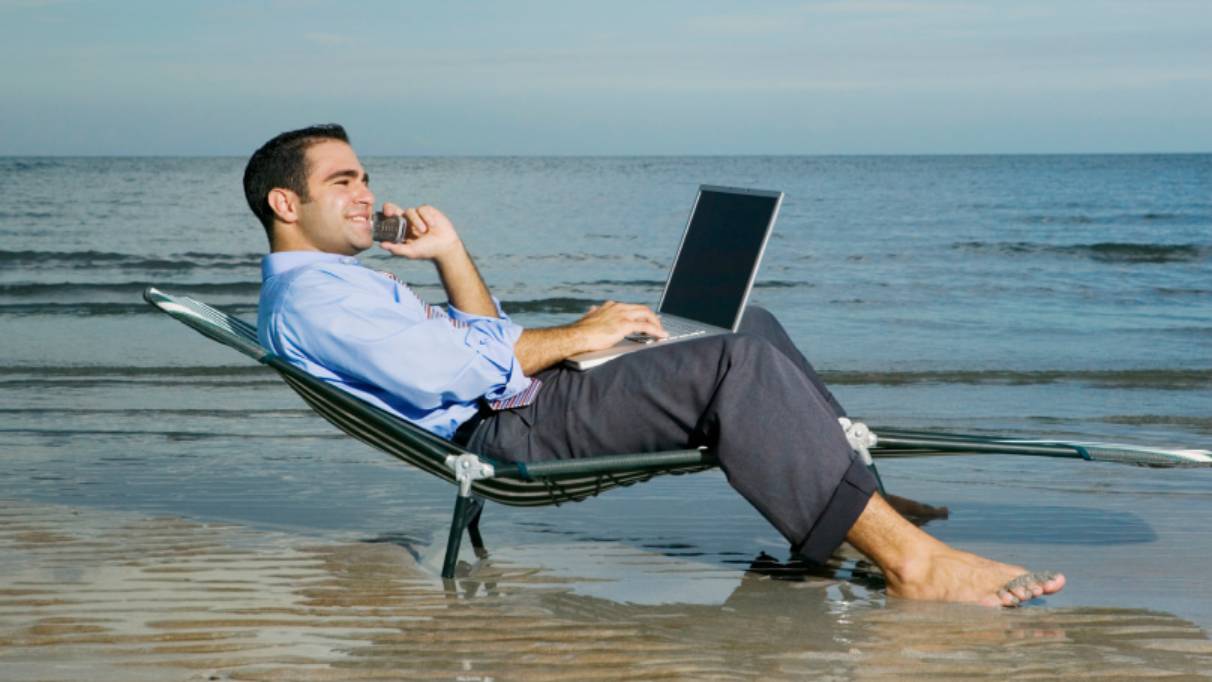
Combining work and travel
We see stunning places online all the time. And, with remote work becoming more common, many people are asking: “Why not work from somewhere new?”
If you can work from home, you can work from almost anywhere. Your office could be a beach, a mountain cabin or a city café. All you need is a good internet connection, a laptop and the ability to manage your time.
Some people move from country to country. Others stay in one place for a few months. You might need to adjust your working hours to match the local time zone, but that’s part of the adventure.
Why more people are working and travelling?
Thanks to better technology and more flexible work cultures, working while travelling is no longer rare. It’s a growing trend for people in some roles.
Many companies support remote work because it boosts productivity, job satisfaction and employee retention. It’s a win-win.
What is nomad travel insurance?
Nomad travel insurance is designed for remote workers and digital nomads who travel regularly between countries. Unlike standard travel insurance for a single trip, it gives flexible coverage for multiple destinations and trip extensions around the world. It can cover things like medical expenses, flight cancellations, trip interruptions and stolen baggage.
Medical care varies in different countries and can be expensive. And being in a new place can sometimes make you more likely to get ill so if you need treatment, insurance might help pay for it.
Bear in mind, any items you take with you that are owned by a business (yours or your employer's) probably won't be covered by your insurance. This might include company laptops or phones. It's worth considering additional gadget insurance to cover higher-value items to give you peace of mind.
Having the right nomad insurance lets you discover new places, meet different people and even support local economies while doing your job.
As one Tripadvisor spokesperson put it: “Remote work opens up so many more travel opportunities… whether it’s extending a trip for more sightseeing or exploring faraway destinations.”
Benefits of combining work and travel
There are lots of potential benefits to working while you’re travelling. Here are just a few.
- Better balance: After you finish work, you can explore, relax, catch up with friends and family or unwind at the beach.
- More freedom: You choose when and where to work. You can work when you feel most productive and still get the most from your travels.
- Less stress: No office monotony or long commutes to work. A change of scenery can make you feel fresh, happy and reenergised.
- Learn new things: See how people live in other places, try new foods, and learn about different cultures. Enriching both your personal and professional life.
- Get creative: New places and people can inspire fresh ideas, new goals and help you solve problems in inventive ways.
- Grow as a person: Being in a new place helps you become more confident and independent.
- Make new friends and contacts: You might meet people from around the world who can help you with your job or future plans. Or connect with new friends.
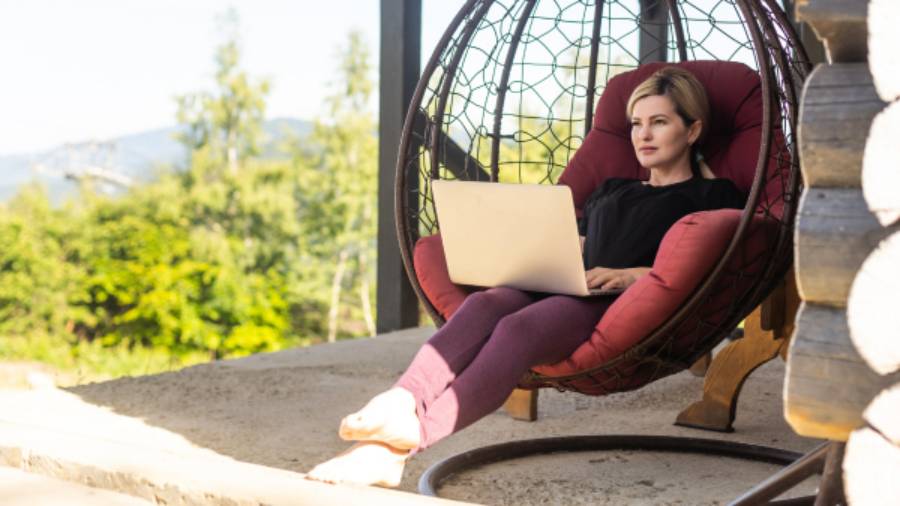
Work while you travel
In many ways, it’s easier than ever to enjoy these benefits. But that’s not to suggest working while you travel is entirely simple. Choosing a working life that embraces extended travel is different from booking a holiday. Planning and preparation will make reimagining your way of living a successful reality.
Once you've stuck your pins in the map and decided where you're going, there are a few questions to answer. Do you need a visa? Where are you going to pay taxes? Where will you live? How will you set yourself up to work? Then there are the home-side issues to solve. Where will you store your things? Do your friends or family want all your stuff in their garage? Who should you notify? How will this plan work if you have an employer? What to do if you have children?
Finally, how will you make sure you're protected while you're away? What if you have an accident and need medical attention, or your valuables are stolen? What kind of cover should you have to travel abroad more permanently?
Make sure you have the right level of insurance cover for your trip
It’s important to remember that not all insurance offerings are the same. Not all insurers cover work equipment, so it’s best to check their policy wording to ensure you are fully covered before you embark on your adventure.
What are the different ways to mix business and leisure?
Here are some terms you may have heard. All of them blend work with travel, but in different ways and to varying degrees.
- Bleisure travel: If you're taking a work trip and you've decided to extend your stay to see some of the sights, you're taking some bleisure time. It's like going on holiday, but you're already at the destination. It's a great way to save money on travel and discover the area you're visiting
- Workations: If you combine a break with some work time, you're opting for a workation. It allows you to prolong your holiday without changing your earning potential. You can shut your laptop and explore at the end of your workday. You might make it a short-term or longer-term break
- Digital nomads: If that doesn't give you enough freedom and you have itchy feet, being a digital nomad might be right up your street. These are people who use technology – laptops, smartphones, reliable internet connections – to lead a truly location-independent lifestyle. They might be freelancers, independent contractors, or employees of companies that already embrace remote working. For the more intrepid traveller, it's a great way to see lots of different destinations and cultures while earning
Taking a workation or becoming a digital nomad typically requires a job that allows remote working. It might already be your daily reality and adding travel to the mix is a real prospect. You won't need to set an out-of-office notification because you'll be taking the office with you.
Discover the right level of cover for you
What kind of job allows me to become a working traveller?
Any role where you can work remotely, whether you're self-employed or work for a company. If you only need a laptop and an internet connection, your job can be done anywhere worldwide. As long as you can complete your tasks at a distance and have the required permission, that is.

What are the top priorities for working abroad?
"There’s a bit more planning required on a working holiday," TripAdvisor tells us. "Not only to ensure your chosen destination is set up for remote working, but also to make the most of your free time in a new country."
Here are a few key things to consider for planning to work abroad.
Visas
You must have a visa to work in a foreign country for an extended period legally. Many countries now provide special working visas, but each country has different rules.
Some visas have stipulations, such as making sure you have travel insurance, so check all requirements and set one up in advance. Organisations like the Digital Nomad Embassy can help you complete your visa applications for a fee.
Taxes
You'll also need to understand your tax liability in any country or countries you’re planning an extended stay in. If you're working for a UK company, you'll pay tax in the UK. But what about the country you'd be living in? The last thing you want is to pay taxes twice.
Some countries don't require you to pay taxes. Currently, Barbados gives one year tax-free to people who make the trip to work and live, for instance. Why do they offer this benefit? Taxation is likely to act as a barrier, and they're willing to give this up for the positive impact your living expenses will have on the economy.
Get advice from an accountant or an international tax lawyer before planning your move. Do your research before making your final decision, as these conditions can significantly affect your earnings.
Time zones
Work out the time gap between your home country and where you’ll be working from. Find the overlapping hours where both you and your colleagues or clients will be working. This will help make sure you’re available at the best times for meetings and collaboration.
Use digital tools to help you schedule your time and communicate effectively. And keep in mind you may need to be flexible to adjust the hours you work, though this may even free you to enjoy your location at better times of day.
Accommodation
You'll be looking for long-term accommodation, which must be affordable. Unfortunately, it might not come with the swimming pool or sea view you'd choose for a vacation. Try researching companies that recommend suitable properties or look for local groups where these rental posts appear. Consider finding a co-living space to share with like-minded people, especially at the beginning when you're finding your feet.
You'll need a home with a suitable workspace and access to the proper facilities. Most importantly, you’ll need a good internet connection. You might have to find a co-working space while you get settled in. But this shouldn't be a long-term plan as they're not budget efficient.
Finding a Airbnb for accommodation can be a good option with them being reputable and offering a great selection of properties to suit all budgets in Europe and beyond.
How do I plan my trip?
The key to success is managing your mental health and avoiding burnout. If you've ever been on a single trip that includes different destinations, you'll know how tiring it can be to pack up your stuff and move continuously. That'll be intensified if this is your new way of living. And moving a lot also increases your costs and set-up times.
Experienced digital nomads recommend staying in one spot for at least a month, preferably three, and using your free time to travel around the area.
Who does this mix of travel and work suit?
It's open to anyone who can work remotely, at any age.
It could be the right choice if you're flexible or settle into a new environment quickly. It could also suit if you’re happy working alone and don't have responsibilities that make prolonged travel difficult.
Think carefully, though, about whether it will suit you if you have a health condition that needs regular medical attention.
If it fits your personality and circumstances, all you need to do is plan and be sure you approach this new way of living in a way that's healthy and positive.
How do I take care of myself?
Don't push yourself beyond what you can handle mentally and physically.
Find balance in seeing it all, working, and finding moments to relax. It's good to have routine and consistency. Perhaps map out days when you won't go exploring and instead tidy your living space, do your washing or watch your favourite show. Other times explore local areas rather than venturing too far afield. And if you work from home already, you'll know the battle of shutting your laptop when work time is over and not letting it bleed into your downtime.
Find a digital nomad group of like-minded travellers willing to connect or meet up and share their experiences and knowledge. A bit of research will put you in touch with these groups or explore co-working and living spaces to meet new acquaintances.
Tripadvisor agrees: “Whatever you’re planning, checking reviews and travel forums is the perfect way to get up to date insight from other digital nomads, from information on co-working spaces and Wi-Fi connection, to all the best spots to eat, drink and explore while you’re out there.”
Read more: Tips for travelling alone
What about the environmental impact of travel?
There are a few ways to lower your footprint. For example:
- Staying in one place longer
- Choosing slower, more environmentally conscious forms of travel
- Support the local community by using authentic local businesses and experiences
- Getting involved with charities or fundraising
It'll help you feel more connected and go a little way towards offsetting your travel.
Remember to make time for fun
Once you've got all the technical stuff in place, it's time to have fun. After all, chances are you’ve never seen these places or experienced the culture before, and there’s likely lots of things to explore.
Try working outside on some days, and soak up the atmosphere while you have lunch, a coffee or a glass of the local beverage. Go on walks during your lunch break. If it suits you and those you report to, take time out in the afternoon and work in the evenings, or whatever hours suit.
Whatever you do, embrace why you chose this path and take full advantage of where you are. You might only do this once in your lifetime, or it might become your new way of life. Whichever it is, make memories that will last forever.
Combining work and travel planning: we can help with that
If you’re thinking of blending work and travel together on your next trip abroad or want to become a regular digital nomad, we can help with those important things you’ll need to do before you go.
- Foreign currency: It’s always handy bringing some cash. Preorder the currency you need to avoid higher exchange rates abroad before your trip. Order from over 60 currencies online or at selected branches. Collect from any branch on the next working day. You can get euros on demand in some branches, too and we offer delivery to your home using Royal Mail Special Delivery, free if your order currency is over £500
- Post Office Travel Money Card: Bringing this prepaid and reloadable travel card means you can pay contactless in whatever currency you need. Load it with any 22 currencies and take advantage of fixed exchange rates whenever you top up on the travel app
- Passports: Make sure your passport is in date for your trip. Apply for or renew your passport, and get your application right first time with our Passport Check & Send service
- Travel eSIMS: Choosing a travel eSIM can help you save money on your roaming charges when you travel. This digital SIM card connects you to local networks so you can use your favourite apps and mobile data just like at home. Whether you’re doing some bleisure travel or a workation, an eSIM will help you stay connected without paying expensive roaming fees
Key takeaways
- Confirm you can do your job anywhere
- Research work visas and tax liability
- Pre-plan accommodation so you’re up and running when you get there
- Take care of yourself with travel insurance
And then escape and see the world
Looking for travel insurance you can count on?
Common questions
-
To get started:
- Build skills you can use online
- Find a job that lets you work remotely
- Save money and plan your budget
- Choose safe, affordable places with good internet
- Set a routine to stay focused
Talk to other digital nomads online or at events. They can share tips and help you prepare.
-
Yes, but it takes planning. You might need to home school your kids, which means following legal rules and making sure it works for their learning and your lifestyle.
-
- Connect with local people and communities
- Stay in touch with friends and family
- Learn a few words of the local language
- Get travel insurance in case of illness or emergencies
- Make sure you get any needed vaccinations before you go
-
- Your company must agree to it
- You need to be able to work well from another country
- Managing time zones can be tricky. Working UK hours from abroad might mean early mornings or late nights
-
Travel insurance isn’t mandatory for travel, unless a specific country or trip type requires it. But it’s a good idea as it may cover you in the event of trip cancellations, medical emergencies, lost or damaged belongings, or other incidents or disruption the policy you choose safeguards against. You can also add extra cover for gadgets like laptops and phones.
-
If you’re thinking about a bleisure or workation, things to consider include:
- Which countries are covered
- How long you can stay in each place
- What’s included (like medical help or lost items)
- Any limits or exclusions
If you have a health condition, tell the insurer upfront so you’re properly covered.
Related travel products
-
Travel money
Order foreign currency online or in selected branches. Pick up in any branch or get it delivered to your home
-
Travel money card
The savvy way to spend abroad. One prepaid Mastercard™ you can top up any time with up to 22 currencies
-
Passport Check & Send
Get your passport application right the first time. We can even complete and submit it for you digitally
Related services and guides

Top tips for going to festivals overseas
With festivals overseas becoming the new norm, festivalgoers need to do a bit more planning than for a UK festival.

How to protect your travel documents
While it’s useful to take hard copies of travel documents away, you can minimise your worry and risk. Here are some handy tips on keeping your travel documents safe.
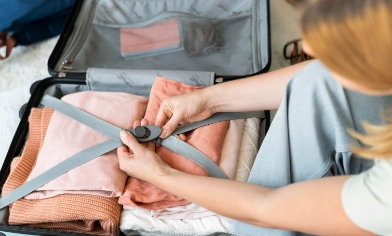
Travel hacks to help save money on your holiday
Satisfy your travel craving while making your holiday budget go further.

Travel insurance for New Zealand
Find out what medical care Brits can access in New Zealand and travel risks to be aware of like natural catastrophes, however rare.

Travelling during your pregnancy
Before your little bundle of joy arrives, you may be considering taking a holiday. But is it safe? And what precautions should you consider before making a booking?

8 tips on staying safe while you enjoy your winter sports
The white stuff is alluring, so make sure you can enjoy it safely, are ready for the unexpected and pack travel insurance for extra reassurance.

Travel insurance for seniors and travelling with grandchildren
Read our guide to travelling in later life. We explore what to look for in your travel insurance, plus taking trips with your grandchildren.

How to travel with your dog
Taking your best friend on holiday with you is everyone's ideal situation, but travelling with a dog can be a complicated process. Make sure you know how.

Travel insurance for Turkey
A trip to Turkey offers toasty beaches and tourist treats aplenty. No wonder it’s so popular with holidaymakers from the UK and elsewhere.

USA travel insurance
Discover top places to visit, tips on staying safe and why travel insurance is essential for an unforgettable USA adventure

What is ABTA?
Over 60 million people travel from the UK most years for holidays or business. The vast majority enjoy smooth, trouble-free journeys. Sometimes, though, things go wrong.
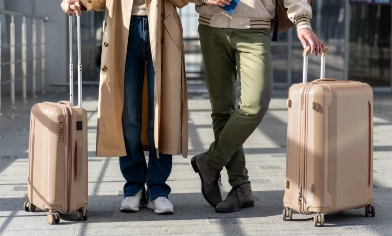
What can I take on a plane?
Ready to jet off on a much-needed break but confused about what you can take with you on the flight?

Teen travel: holiday ideas for teenagers and tips for parents
Travel can help teenagers grow and discover new places. This guide shares the best trips for teens, advice for those travelling independently for the first time, plus tips for parents too.

Where is hot in September, October and November?
Looking for holiday destinations that promise warmer days as UK temperatures start to fall? We can help with that.

Spain travel insurance
Discover some top places to visit in Spain, tips on staying safe while you’re there and why travel insurance is essential for an unforgettable Spanish adventure.

Travel insurance for Thailand
Thailand’s idyllic beaches, azure-blue sea, buzzing cities and exciting alternative scene are a draw for Brits. A trip can be a once-in-a-lifetime event.

Travel tips for babies, toddlers and young kids
Travelling with kids? Before you get on the plane, read our quick and easy guide to help make sure your journey runs smoothly.

Post Office Travel Insurance Winter Sports Survey
With the winter sports season upon us, we conducted a Winter Sports Survey for the second year running. It found as many as four in 10 UK travellers (39%) planned to take up a winter sports activity this year, with 25% keen to go skiing. It also emerged that many prefer winter escapes to summer ones. But has the nation considered all the protection we need for winter sports holidays? Or are we woefully underprepared?

Winter sun holiday destinations to escape to
Looking to escape the chilly UK winter? Our Winter Sun Survey reveals the top sunny destinations UK travellers are choosing this season. And learn why travel insurance is key for a worry-free holiday in the sun.

Where is hot in December, January and February?
Looking for holiday destinations that promise warmer days in the UK’s colder winter months? We can help with that.

Great tips for people travelling alone
Whether you’re travelling solo because of business, you’re hoping to meet someone, or simply because you enjoy it, being by yourself can sometimes be a daunting prospect when you’re abroad.

Travelling without insurance: Why you should never take the risk
If you’re thinking of heading abroad without insurance, think again. This guide explains why doing so can be risky, busts common myths about the need for insurance and shows how easy it is to protect yourself.
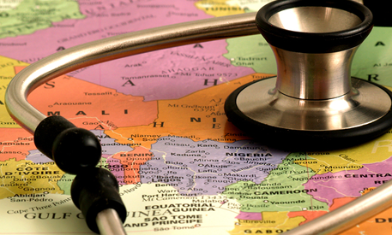
Do I need travel vaccinations?
There’s no better feeling than planning an amazing trip to an exotic destination. Make staying safe with travel vaccinations top of your to-do list.

Where is hot in March, April and May?
Spring is a great time to leave the cooler UK and go somewhere sunny. And we can help with that.

Schengen travel insurance for UK travellers
There are different rules for travelling to the Schengen Area from the UK since Brexit. If you’re visiting this part of Europe, find out if you need a Schengen visa and travel insurance.

The Travel Safety Index for Solo Travellers
Travelling solo means freedom and independence, making new connections and never having to compromise.

Travel insurance for South Africa
How safe is South Africa to visit and why is having travel insurance important when you go? Our guide looks at the potential travel risks and the cover you may want to look for in a policy.

What is ATOL protected?
ATOL stands for Air Travel Organisers' Licensing, a scheme that helps make sure consumers are covered if travel firms fall into financial difficulties.

Vaccinations needed for Thailand
Some vaccinations for Thailand are recommended and some are mandatory in certain circumstances. It’s important to know which vaccinations or injections for Thailand you need to get before you leave home.
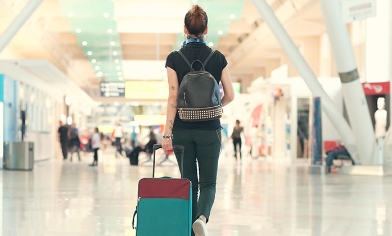
When to buy travel insurance
Do you need travel insurance for your trip? Is travel insurance worth it? And, if yes, when is the right time to buy cover?
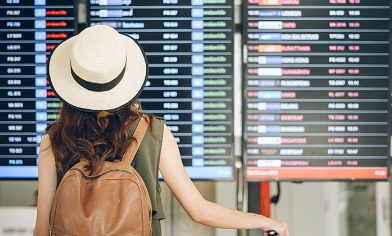
Safe travels: where can I go on holiday?
Travel’s a great way to unwind, see the world, open the mind and expand horizons. But rapidly changing situations around the world can soon impact such plans.

Find hot holiday destinations any time of year
If you're the type of sunchaser who looks forward to that sizzling summer break, can’t wait to escape to warmer climes in the UK’s winter months or can't be away from vitamin D too long, we’ve got a few ideas about where to go.

Australia travel insurance
Find the best places to visit in Australia, tips on staying safe and why travel insurance is a must for your trip.
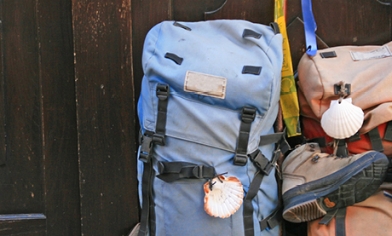
A complete list of backpacking essential items
Going backpacking is one of life’s great adventures. But before you set off you’ll need some packing tips so you're not weighed down on the way.

Travel insurance for the Balearic Islands
It’s one of the most popular holiday hotspots for UK holidaymakers. But what can you expect from a trip to the Balearics?

Getting travel insurance for an adventure holiday
Adventure holidays come in all shapes and sizes. They can be full of action or just include a few activities, depending on the type of getaway you’re going for.
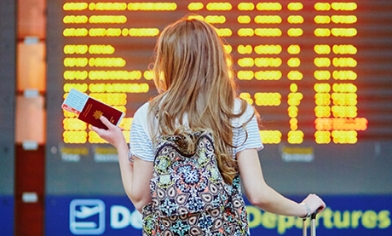
What to do if your airline or holiday company goes bust
Finding out that your airline or holiday company has gone bust is a shock – especially if you’re on holiday at the time. But there are plenty of laws and regulations in place to protect you and your family from losing what could be a lot of money.
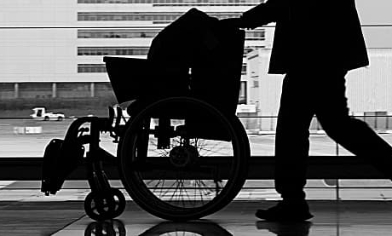
How to get assisted travel at airports
Lots of people who need assisted travel at airports are missing out simply because they don’t know how to go about asking for it.

What is the best month for a Caribbean cruise?
Dreaming of turquoise waters and sun-kissed beaches? Planning the perfect Caribbean cruise starts with choosing the right time to go. This guide explores the best month for a Caribbean cruise, what weather to expect and how to prepare.

How many bank holidays are there in the UK?
Bank holidays are special days off when many people in the UK don’t work. They’re a great chance to relax, travel, see family or catch up on things.

Top cruise destinations for your bucket list
Ever dreamed of sailing to the world’s most exciting places? Cruises can make that happen.

Travel insurance for Cuba
Today, Cuba is more accessible than it has been for many decades, and those who decide to holiday there can expect a mixture of colourful city life and luxurious beaches.
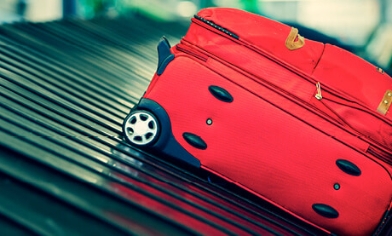
What you should do about delayed, lost or damaged luggage
The last thing you want to happen on holiday is standing the luggage carousel at the airport waiting for bags that don't appear. It's a huge inconvenience that can cost you time, money and a lot of stress.

Travel insurance for Egypt
Make sure you’re travelling safely in Egypt with the latest advice and risks, and learn about getting around and local culture.

European and Global Health Insurance Cards
If you're travelling to an EU country from the UK, make sure you take a Global Health Insurance Card (Ghic) with you or existing European health Insurance Card (Ehic), if it's still in date. You'll need them to access free healthcare during your stay, should you need it.

Everything you need to know about embassies
Learn the difference between embassies and consulates, and why you might need them when travelling.

Travel insurance for diabetics
You should be able to get the right cover to travel abroad if you’re diabetic, making sure that your medical needs are taken care of.

Do I need travel insurance for a UK break or staycation?
Travel insurance for a holiday in the UK isn't something you must have, but it might be something you want to have.

Travel insurance for Dubai
Discover top places to visit, tips on staying safe and why travel insurance is essential for an unforgettable Dubai adventure.

Family travel insurance
Going on a trip with your family is a great way to spend time together. It could be a holiday, a weekend away or a big trip abroad.
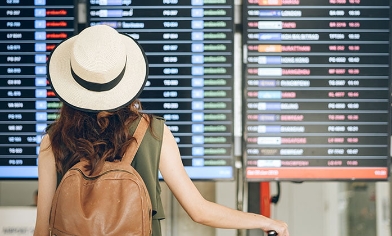
Flight delays and compensation
Most of the time, getting a flight is a hassle-free event. If you only take hand luggage, have your boarding pass saved to your phone and everything’s running to plan then you can breeze through security and hop on your flight with little fuss.

Travel insurance for France
It may be a short hop away, but a trip to France is not without its travel risks. Make sure you’re clued up on what they are and have travel insurance in place to help protect you, so you can concentrate on just enjoying your break.

Gap year travel advice for solo travellers
Exploring the globe can be scary, but there’s so much to find at the edge of your comfort zone. We look at some of the top destinations to visit on your own – and share tips on how to keep safe when you go.

Don't make these holiday mistakes
Booking a last-minute holiday can get the blood pumping with the sudden thrill of adventure, but it also makes it easier to overlook things.

How to pack a suitcase
Whether you’re heading to the beach for a much-needed break or boarding a boat for a cruise somewhere breath-taking, it’s important to know what to pack in advance so you’ll have everything you need.

10 tips for keeping kids safe on holiday
We all know the feeling – getting to the airport, then a wave of panic comes over you. Did you remember your passport? What time's the flight? And where on earth did you put the kids?
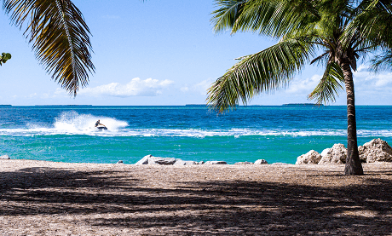
10 ways to look after your valuables at the beach
The whole idea of lounging around on the beach is to switch off and enjoy the sunshine. But the reality is that opportunistic thieves are on the lookout for unattended valuables, and it’s important to make sure you’re protected.

Don’t let illness spoil your perfect holiday – book an online doctor
There’s nothing worse than falling ill while away from home. Along with the worry of the cost of visiting a doctor and getting treatment, being poorly can put a real dampener on your trip.

Travel insurance for Mexico
Find out about medical care available to Brits in Mexico, as well as travel risks, transport options and the importance of taking travel insurance.

Travel insurance for Morocco
Perched on the northern tip of Africa, Morocco’s long been a popular destination for UK holidaymakers. If you’re heading there soon, make sure you’ve got good travel insurance to cover you.

Travel insurance for India
For many UK holidaymakers, India is an intriguing and diverse culture with colourful traditions and engrossing history. For many others, it’s a home from home.

Travel insurance for Ireland
Do UK residents need travel insurance for Ireland? And what healthcare is available for Brits if they’re visiting the country?

Is Airbnb safe? Tips on staying safe
The arrival of Airbnb has helped to transform the travel industry in recent years. On any one night, over two million people stay in homes advertised through Airbnb in 65,000 cities around the world.
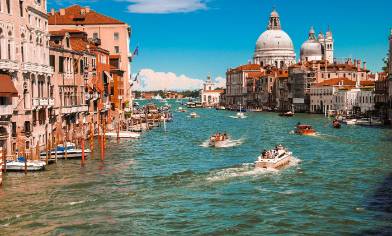
Travel insurance for Italy
Find out about the safety of travelling to Italy as well as the medical care available to Brits and how to get around.

Travel insurance for Japan
If you’re jetting off to Japan soon make sure you have good travel insurance to cover your trip. The right policy may offer more protection than the standard medical care UK citizens can access when they visit.

Travel insurance for cancer patients
If you're living with cancer but love to travel, can you get travel insurance for your trip?

Kids’ travel insurance
It’s exciting when your child takes their first trip without you. Whether it’s a school visit, a holiday with friends or a gap year adventure, you’ll feel proud… but it’s normal to worry too.

Compare our travel insurance
Travel insurance is essential for any trip. It can help protect you from things like flight cancellations, medical emergencies and lost luggage.

Understanding cruise travel insurance
Thinking of going on a cruise? Learn how cruise travel insurance protects you from unexpected events on board, at sea and on land, for smooth sailing and a stress-free experience.
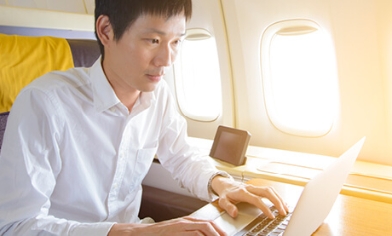
How to get a free flight upgrade
There are several ways to get to the top of the class on your flight – whether that's business or even first.

Travel insurance for Greece
Greece and the Greek islands have long been a popular travel destination for us Brits. But are there any travel risks or other factors to keep in mind before and when you go?

Travel insurance for people with high blood pressure
Travelling with high blood pressure is fine – but it’s important to make sure you’ve got the right cover in case something goes wrong abroad.

Holiday packing and pre-travel checklist
So, you’ve booked your flights, accommodation and activities. What next?

Lost and costly: What UK holiday-goers lose most on holiday and how to avoid it
A surprising number of items get lost on holiday. Learn what you can insure and how to keep it safe.

Travel insurance for Canada
Canada is a vast country of diverse delights – everything from bustling cities to snow-capped mountains, deep forests and crystal clear lakes. If you're thinking of experiencing them, it's time to consider your travel insurance.

Travel insurance for the Canary Islands
People flock to the Canary Islands from all over Europe. No wonder, with such appealing beaches, landscapes and temperatures to enjoy.